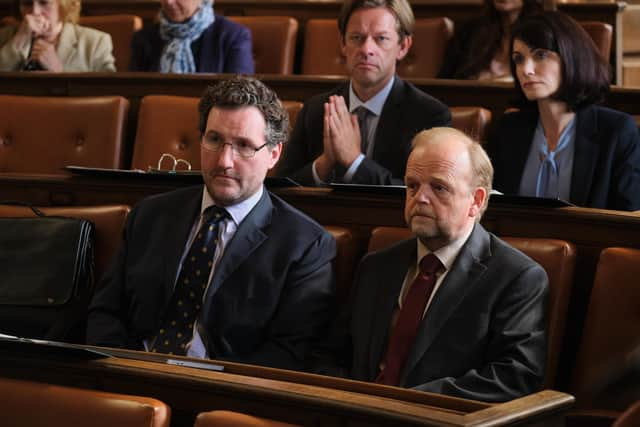Mr Bates vs The Post Office: Separation of powers between courts and legislature is vital - Andrew Stevenson
In the first week of 2024, ITV showed Mr Bates vs The Post Office, a drama exploring the nightmare of malfunctioning technology known as the Horizon accounting software and its ruinous effect on the lives of so many. The indifference and disingenuity of Post Office managers was infuriating, and no viewer with a shred of compassion and a sense of justice would deny that something must be done. I myself recall acting for a Glasgow postmaster who was embroiled in this very fiasco back in the day.
However, the correct remedy lies in the courts and must not be an Act of Parliament of the kind referred to on 10 January by the Prime Minister, a mere week after Mr Bates aired. Rather hastily, it would seem, Mr Sunak announced that primary legislation would be introduced to overturn the convictions of post office workers and staff convicted of theft, false accounting and other such offences arising from their use of the Horizon system.
Advertisement
Hide AdAdvertisement
Hide AdThis is a bad idea, driving a mail coach and horses through the principle of the separation of powers between the courts and the legislature. Scotland should not follow Mr Sunak’s lead on this issue.


The use of an Act to quash a conviction is a constitutional aberration. Certainly, the mechanism is not unprecedented but one has to go back to turbulent times to see it being deployed. It certainly has the virtue of being simple; in England the Act of Pardon, Indempnity (sic.) and Oblivion 1660 stated that, with certain exceptions, such as the regicide of Charles I, as regards treason and similar other offences committed since 1637 all “Judgements, Indictments, Convictions … are hereby Declared and Enacted to be from henceforth null and void”.
Analogously, it would not be difficult to devise an Act declaring that all convictions connected to the use of Horizon software are “null and void” but it would be utterly disproportionate to do so, usurping the role and function of the courts, setting a dangerous modern precedent and risking damage to the rule of law. There are perils in living in a state where Parliament is able to nullify court judgements.
A civil war and republican interregnum constitute exceptional circumstances. There has been nothing in modern times, including the cessation of terrorism in Northern Ireland, to justify the deployment of any legislation of comparable magnitude. It is difficult to discern anything that has occurred since the Jacobite rebellion in 1745 to justify the extraordinarily radical step of using legislation to quash convictions as opposed to pardoning the convicted
Regarding the Miners’ Strike (Pardons) (Scotland) Act 2022, the Scottish Justice Secretary said the pardon conferred would “recognize the exceptional circumstances” of that matter. Notably, though, that Act specifically “does not…affect any conviction” Neither does the Armed Forces Act 2006 or Historical Sexual Offences (Pardons and Disregards)(Scotland) Act 2009. The former pardons but does not acquit First World War soldiers found guilty of desertion and cowardice. The Witches of Scotland campaign sought a collective pardon but not an Act of Parliament quashing anyone’s conviction.


Mr Bates certainly illustrates that one cannot make assumptions about the benevolence of institutions or the infallibility of online systems. The miscarriages of justice exposed by the drama should be resolved in the appeal courts and not by legislation. Our constitution must be protected by respecting the separation of powers. To argue that the courts take too long is merely an argument that they need to be better funded and resourced.
Andrew Stevenson is Secretary, Scottish Law Agents Society
Comments
Want to join the conversation? Please or to comment on this article.